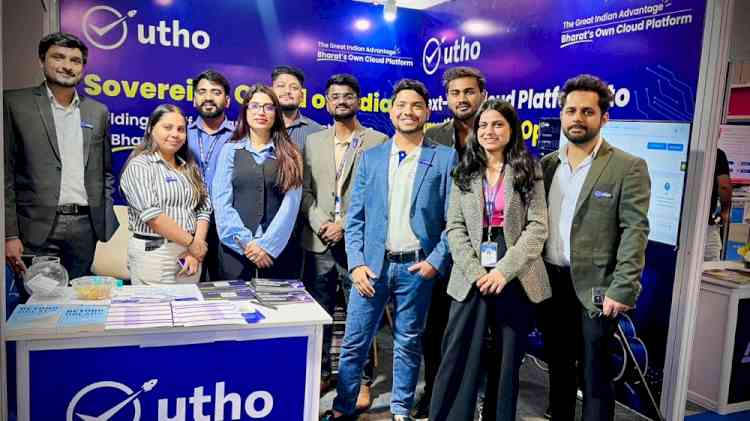India’s AI Shift: From ‘Move Fast’ to ‘Move Fair’ - Need for Responsible Innovation and Collaborative Oversight
As India’s AI ecosystem matures, startups are being called upon to shift from a “move fast” mindset to a “move fair” approach, integrating competition and governance considerations into their core strategies. This imperative was underscored during the recent webinar, “Balancing Innovation and Oversight: India’s Emerging AI Governance and Competition Landscape,” hosted by The Dialogue, which brought together industry leaders, policy stakeholders and technical experts to discuss the evolving regulatory environment for AI in India.

New Delhi, November 14, 2025: As India’s AI ecosystem matures, startups are being called upon to shift from a “move fast” mindset to a “move fair” approach, integrating competition and governance considerations into their core strategies. This imperative was underscored during the recent webinar, “Balancing Innovation and Oversight: India’s Emerging AI Governance and Competition Landscape,” hosted by The Dialogue, which brought together industry leaders, policy stakeholders and technical experts to discuss the evolving regulatory environment for AI in India.
India’s recent AI Governance Guidelines, released under the IndiaAI Mission, signal a clear intent to foster innovation while ensuring responsible and inclusive adoption of AI technologies. These guidelines emphasize transparency, fairness, and accountability, setting a new benchmark for startups and enterprises alike. Simultaneously, the Competition Commission of India (CCI) has initiated a deep-dive into AI-driven market dynamics, suggesting a self-audit framework for businesses to proactively identify and mitigate risks arising from AI-driven systems that may inadvertently violate competition laws. This dual push from both governance and competition regulators is reshaping the innovation landscape, urging startups to embed regulatory foresight into their business models from the outset.
Bhoomika Agarwal, Programme Manager, The Dialogue highlighted that the CCI’s self-audit framework is a commendable step towards responsible and fair AI development. The real task ahead lies in translating these important competition principles into technical language that developers can act upon. Building this bridge between policy and practice will require continuous capacity building, stronger industry-regulator engagement, and enhanced technical understanding within the CCI itself. This could be achieved through structured collaboration with research and capacity-building organisations which can help translate policy goals into actionable technical standards and training programmes.
Abhinav Nayar, CEO, Mool AI, noted that the AI Governance Framework and self-audit model resonates with the best practices that product-focused companies already follow, tracking quality, improving reliability, and being accountable for outcomes. It’s a pragmatic framework that promotes responsibility through good design, not just regulation.
Jameela Sahiba, Secretariat, CoRE AI, commended the AI Governance Framework stating that “the framework’s principle-based orientation shows that India is thinking long-term, setting broad guardrails rather than hard boundaries. That’s what will allow our AI ecosystem to stay both globally competitive and domestically accountable.”
Sundar Narayanan, AI Ethicist opined that self -governance will evolve to become fundamental with evolving contractual compliance / performance demands of AI and emerging international standards on AI. He further advocated for a “trust architecture” built around co-regulation, where industry self-governance complements state oversight.
Sridhar Vaidyanathan, Advisor and consultant, former COO Myelin Foundry, added that “oversight should not mean control; it should mean capability i.e. the ability to intervene intelligently when needed.”
The webinar concluded with a shared consensus: India’s AI future depends on building a regulatory ecosystem that safeguards public interest while empowering innovation. Discussion emphasized the need for industry to ensure AI systems are fair and unbiased. The conversation also underscored the critical role of institutional support and regulatory agility in helping startups adapt to these new requirements, fostering a culture of responsible AI that can sustain growth and competitiveness.



 City Air News
City Air News 










